
Physicians embrace AI scribe technology, reporting enhanced efficiency, reduced burnout, and improved documentation quality in clinical workflows.

Physicians embrace AI scribe technology, reporting enhanced efficiency, reduced burnout, and improved documentation quality in clinical workflows.

The BeeLine trial is a placebo-controlled study designed to evaluate radiprodil’s impact on both seizure frequency and non-seizure symptoms associated with GRIN-NDD.
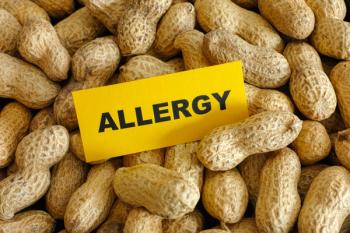
Training tools and EHR prompts boosted pediatricians’ adherence to early peanut introduction guidelines in a new trial.
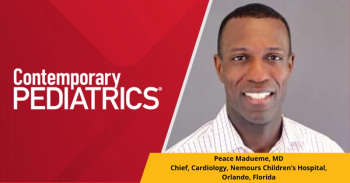
Peace Madueme, MD, explains how Florida’s pre-sports cardiac evaluations—and upcoming ECG mandate—strengthen youth safety in athletics.
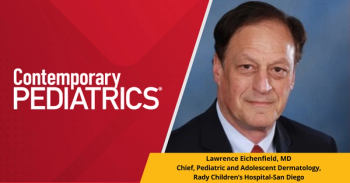
A pair of roflumilast clinical trial investigators react to the FDA approval of the 0.05% formulation to treat atopic dermatitis in children aged 2 to 5 years.

Try to diagnose this patient with 3 days of right-sided neck swelling.
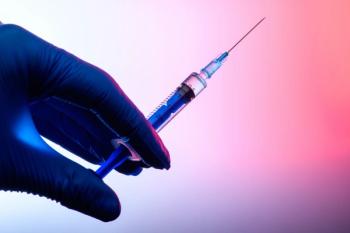
Lori Handy, MD, MSCE, addresses rising vaccine inquiries, emphasizing informed decisions that balance risks and benefits for children's health and safety.

The once-daily, steroid-free cream can be used anywhere on the body for treatment and for any duration, according to Arcutis.
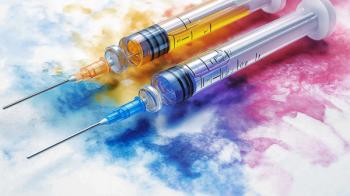
Combination vaccines enhance childhood immunization by reducing the number of shots, improving adherence, and potentially increasing overall vaccination rates.

Watch our FDA pipeline news recap for the month of September 2025 as well as a preview of a key PDUFA date in October.
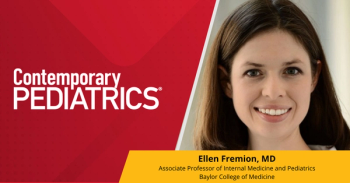
Ellen Fremion, MD, outlines strategies to support smooth transitions from pediatric to adult care, stressing early planning and strong collaboration.

Ingrid Polcari, MD, highlights concerns with teen skin care trends and emphasizes simple, age-appropriate routines tailored to patient needs.

View our Q3 2025 recap of standout pediatric news from FDA regulatory updates, clinical trial results, and expert commentary.
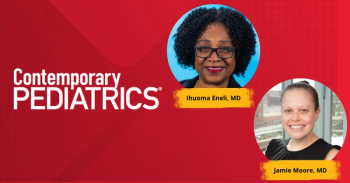
Experts at AAP 2025 highlight criteria, medication options, access barriers, and family engagement in pediatric obesity management.

Ingrid Polcari, MD, discusses acne severity, treatment options, and the importance of persistence and open discussion in pediatric care.
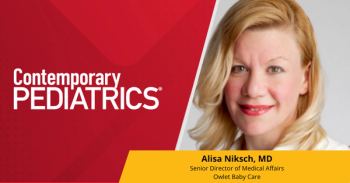
Remote monitoring in pediatrics shows promise for improving outcomes, but device design, workflow integration, and reimbursement remain key.

John Loiselle, MD, shares guidance at AAP 2025 on recognizing pediatric musculoskeletal injuries and when urgent orthopedic referral is needed.
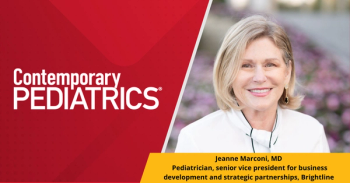
In this video, Jeanne Marconi, MD, highlights some of the challenges providers face when implementing mental health screenings.

Take a quick look at everything you may have missed this month, including the top FDA approvals and latest clinical updates.

A look back at the FDA submissions and regulatory decisions in the pediatric health care space from September 2025.

Explore how family-centered care and early intervention in STI prevention can transform pediatric health outcomes for future generations.

Panelists emphasize the importance of consistent screening for children and adolescents, highlighting new diagnostic tools and the need for education.

Panelists emphasize the importance of early STI screening in pediatrics, encouraging open discussions and parental involvement for better health outcomes.

Experts emphasize the critical role of access and early detection in maternal-fetal health, highlighting the need for improved STI testing and collaboration.

Explore how diagnostic stewardship enhances infection detection and treatment, especially for adolescents seeking convenient testing options.

FDA prioritizes gepotidacin, an oral gonorrhea treatment for adolescents, enhancing access and adherence in sexual health care.

Explore the latest advancements in STI screening and management, focusing on pediatric care and the critical role of early detection in newborns.

C. Buddy Creech, MD, MPH, highlights advances in mRNA, monoclonals, adjuvants, and mucosal vaccines, stressing safety and parent communication.

From another potential treatment for pediatric atopic dermatitis, to STI therapy for uncomplicated urogenital gonorrhea, take a look ahead at key PDUFA dates in Q4.
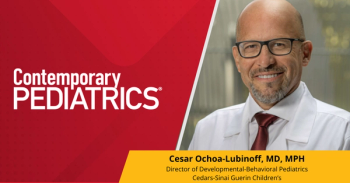
Pediatricians can use structured visits, rating scales, and AAP guidelines to improve ADHD diagnosis, follow-up, and care coordination.